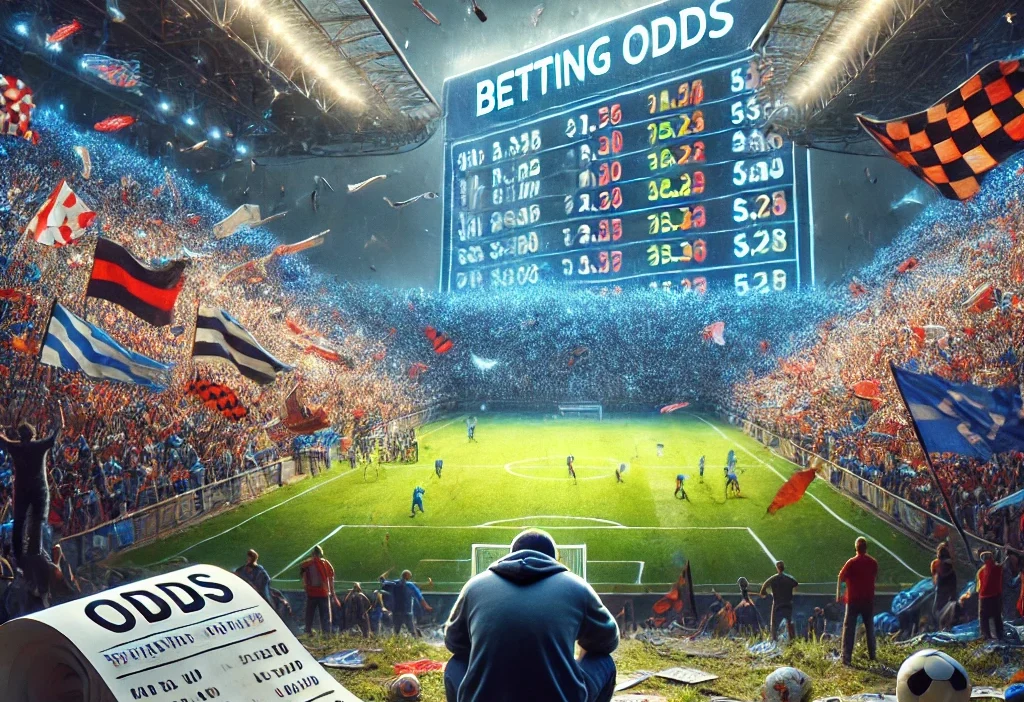Research on sports betting markets presents mixed findings regarding the influence of fan sentiment on profitability. Some studies indicate that bookmakers adjust odds to exploit sentimental biases, particularly for popular teams, with odds systematically skewed to account for expected betting volume rather than true probabilities (Forrest & Simmons, 2008; Feddersen et al., 2018, 2017). This suggests that bookmakers capitalize on irrational betting patterns by offering less favorable odds on teams with strong fan followings. However, these adjustments do not necessarily translate into higher returns for bettors, as the market often corrects for extreme inefficiencies over time (Feddersen et al., 2018, 2017).
Fan identity-based biases can negatively impact prediction accuracy, as bettors with strong emotional attachments may struggle to make objective assessments. By contrast, those with greater contextual knowledge of a sport tend to make more accurate predictions, as demonstrated in studies of betting behavior (Na et al., 2018). Sentiment bias appears to be particularly pronounced in NFL betting, especially on weekends when casual bettors are more active (Feddersen et al., 2020). Additionally, certain inefficiencies have been identified, such as the tendency to overvalue teams that made the playoffs in the previous NFL season when setting opening game lines (Fodor et al., 2013).
While some studies have found profitable betting strategies that exploit these inefficiencies (Gray & Gray, 1997; Fodor et al., 2013), others argue that rational arbitrageurs help to correct most biases in point spreads, preventing long-term profitability from sentiment-based mispricing (Durham & Perry, 2012). Overall, the effect of fan sentiment on betting profitability appears to vary across sports and contexts, with market efficiency generally limiting the extent to which sentiment-driven biases can be systematically exploited.
Bookmakers adjust odds to exploit sentimental biases, particularly for popular teams, with odds systematically skewed to account for expected betting volume rather than true probabilities
Summary of: Feddersen Et Al 2017, 2018
Anecdote
Have a story to share? Write to us at research@bettingresearch.org if you have a related, personal experience you would like to see placed here and share with the community.
Articles Cited
- “Greg R. Durham, Tod Perry (2012): The Impact of Sentiment on Point Spreads in the College Football Wagering Market, https://doi.org/10.5750/JPM.V2I1.433
- The paper investigates whether sentimental bettors affect the point-spread-formation process in the college football wagering market, and whether this market is efficient.”
- “D. Forrest, R. Simmons (2008): Sentiment in the betting market on Spanish football, https://doi.org/10.1080/00036840701522895
- The paper examines the efficiency of betting odds in the online betting market for Spanish football, finding that odds are influenced by the relative number of fans of each club, with more favorable odds offered for bets on more popular teams, which contrasts with previous studies on American sports betting markets.”
- “A. Feddersen, B. Humphreys, B. Soebbing (2018): Sentiment Bias in National Basketball Association Betting, https://doi.org/10.1177/1527002516656726
- The paper examines the presence of sentiment bias in the NBA betting market, where bookmakers adjust point spreads to account for team popularity, but this does not lead to higher returns for bettors.”
- “A. Feddersen, B. Humphreys, B. Soebbing (2020): Casual bettors and sentiment bias in NBA and NFL betting, https://doi.org/10.1080/00036846.2020.1776833
- The paper analyzes the presence of sentiment bias in betting markets for NBA and NFL games, and how game timing (weekday vs. weekend) affects the presence of bettors with popularity-based sentiment bias.”
- “Andy Fodor, Michael DiFilippo, Kevin Krieger, Justin L. Davis (2013): Inefficient pricing from holdover bias in NFL point spread markets, https://doi.org/10.1080/09603107.2013.829201
- The authors identify an inefficiency in the NFL point spread gambling market where teams that made the playoffs in the prior season are favored by too large a margin in the opening week of the following season, despite only winning 51.7% of those games against teams that failed to make the playoffs in the prior year.”
- “Sangwon Na, Yiran Su, Thilo Kunkel (2018): Do not bet on your favourite football team: the influence of fan identity-based biases and sport context knowledge on game prediction accuracy, https://doi.org/10.1080/16184742.2018.1530689
- This study examines how sports fans’ biases and knowledge of the sports context influence the accuracy of their predictions of sports game outcomes.”
- “A. Feddersen, B. Humphreys, B. Soebbing (2017): Sentiment Bias and Asset Prices: Evidence from Sports Betting Markets and Social Media, https://doi.org/10.1111/ecin.12404
- The paper examines the influence of investor sentiment, as proxied by social media data, on sports betting market prices, and finds that bookmakers offer favorable betting lines for popular teams, though this does not lead to a higher probability of winning bets.”
- “P. Gray, Stephen Gray (1997): Testing market efficiency: Evidence from the NFL sports betting market, https://doi.org/10.1111/J.1540-6261.1997.TB01129.X
- The paper examines the efficiency of the NFL betting market using a probit model and finds that probit-based betting strategies can generate statistically significant profits, though with some inconsistency in out-of-sample predictions.”
Insufficient Detail?
At times it is difficult to answer the question as there are not enough relevant published journal articles to relate. It could be that the topic is niche, there’s a significant edge (and researchers prefer not to publish), there is no edge or simply no one has thought to investigate.



